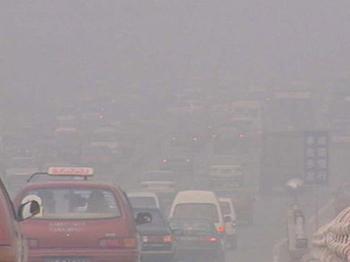Auto Parts For Peugeot
Belt Tensioner for Peugeot,Drive Belt Tensioner for Peugeot,Seat Belt Tensioner for Peugeot,Belt Tensioner Pulley for Peugeot , Guide Pulley for Peugeot, Drive Belt Idler Pulley for Peugeot,V-Ribbed Pulley for Peugeot etc.
Peugeot models: Peugeot 206/ 306/307/407/607.
Belt Tensioner Peugeot, Drive Belt Tensioner for Peugeot,Belt Tensioner Pulley for Peugeot , Guide Pulley for Peugeot, Drive Belt Idler Pulley for Peugeot Wenzhou Baoerte Autopart CO.,LTD , https://www.baoerteautopart.com Beijing's automobile exhaust emissions account for more than 50% of atmospheric pollutants, of which commercial vehicles are even more polluting. It was recently learned that although new passenger car emissions will be implemented in September 2012, which is equivalent to the Euro V rating, commercial vehicles remain at the level of State III. The relevant person in charge of the Municipal Environmental Protection Bureau revealed that if the national commercial vehicle were successfully switched to the National IV standard on July 1, 2013, the Beijing commercial vehicle would be ahead of the national standard and be upgraded from the State III emission directly to the current Euro V standard.
Beijing's automobile exhaust emissions account for more than 50% of atmospheric pollutants, of which commercial vehicles are even more polluting. It was recently learned that although new passenger car emissions will be implemented in September 2012, which is equivalent to the Euro V rating, commercial vehicles remain at the level of State III. The relevant person in charge of the Municipal Environmental Protection Bureau revealed that if the national commercial vehicle were successfully switched to the National IV standard on July 1, 2013, the Beijing commercial vehicle would be ahead of the national standard and be upgraded from the State III emission directly to the current Euro V standard.
Among the rumbling engine noise, long-distance buses or big trucks smoky through the streets, and are often seen on the streets of Beijing. At present, the total number of motor vehicles in the city has exceeded 5.1 million, but the total number of commercial vehicles such as passenger cars, vans and heavy-duty trucks is only 300,000. However, it is precisely because of these 300,000 vehicles that sewage discharge accounts for half of the city.
On July 29th, with the completion of Sinopec Reclining Petrol Station gas station Beijing V oil replacement, Beijing's main gas station successfully completed the upgrade of oil products from Beijing IV to Beijing V. The emission standards for automobiles have been upgraded. It is an international practice to first implement oil products to avoid causing harm to new vehicles. However, at present, the quality of domestic diesel is generally lower than that of gasoline. Except for Beijing, Shanghai, and Guangzhou, a few cities can supply the country's IV diesel, the vast majority of regions are still using State II or even State I diesel, which has become the standard for the upgrade of new vehicle commercial vehicles. The important reason for delay.
In early 2012, the Ministry of Environmental Protection issued the “Announcement on the Implementation of National Phase IV Standards for Vehicle Combustion Engines and Vehicle Pollutants Discharge Standardsâ€, which stipulates that all production, import, sales, and registrations will begin on July 1, 2013. Vehicle compression ignition engines (mainly diesel engines) and automobiles must comply with the National IV standard, but this is the second time that the implementation of the National IV standard for heavy-duty diesel vehicles has been postponed.
According to Li Kunsheng, director of the Vehicle Emissions Management Division of the Municipal Environmental Protection Bureau, buses and sanitation vehicles in Beijing have generally reached the Euro V standard, and other general commercial vehicles have implemented the State III standard. As of July 1, 2013, if the country's commercial vehicles were successfully upgraded to state IV emissions, the national diesel quality would also be upgraded. By then, commercial vehicles in Beijing will directly meet the European Standard V.
Previously, the process of upgrading passenger vehicle emission standards proved that the use of new oil for old vehicles will not affect the performance of vehicles, and pollutant emissions will also be significantly reduced. However, the use of used oil in new cars will affect car performance more or less. "In Beijing, if Beijing-V oil vehicles are used, short-term use of the country's IV oil in Beijing should not be a problem." Automobile professionals say, but if the country V vehicles use the State III oil or even the State II oil, the engine may be There will be damage. Therefore, whether the national IV standard can be successfully switched is the key to Beijing Euro V emission standards for commercial vehicles in 2013.
In China, the consumption of diesel accounts for about 70% of the total amount of gasoline and diesel, and huge investment in oil upgrading has become the biggest resistance to the improvement of diesel quality. Sinopec and PetroChina estimated that each ton of gasoline was upgraded from State IV to standard European V, and the cost was increased by approximately 300 yuan. To this end, it is necessary to upgrade the entire oil refining system. Yanshan Petrochemical has transformed the 10 million-ton oil refining system supported by the Beijing Olympic Games. The total investment is reportedly as high as RMB 5.7 billion.
It is also known that domestic car manufacturers can provide more European V-emission passenger vehicles, which has reached 366 types at present, and can achieve a smooth transition in the Beijing automobile market. However, only a handful of commercial vehicles and diesel engines that meet Euro V emissions are available. Li Kunsheng said that major domestic commercial vehicle manufacturers have already tracked the upgrade of Beijing's emission standards in advance, and in 2013 they had no problem with the products of the European standard.